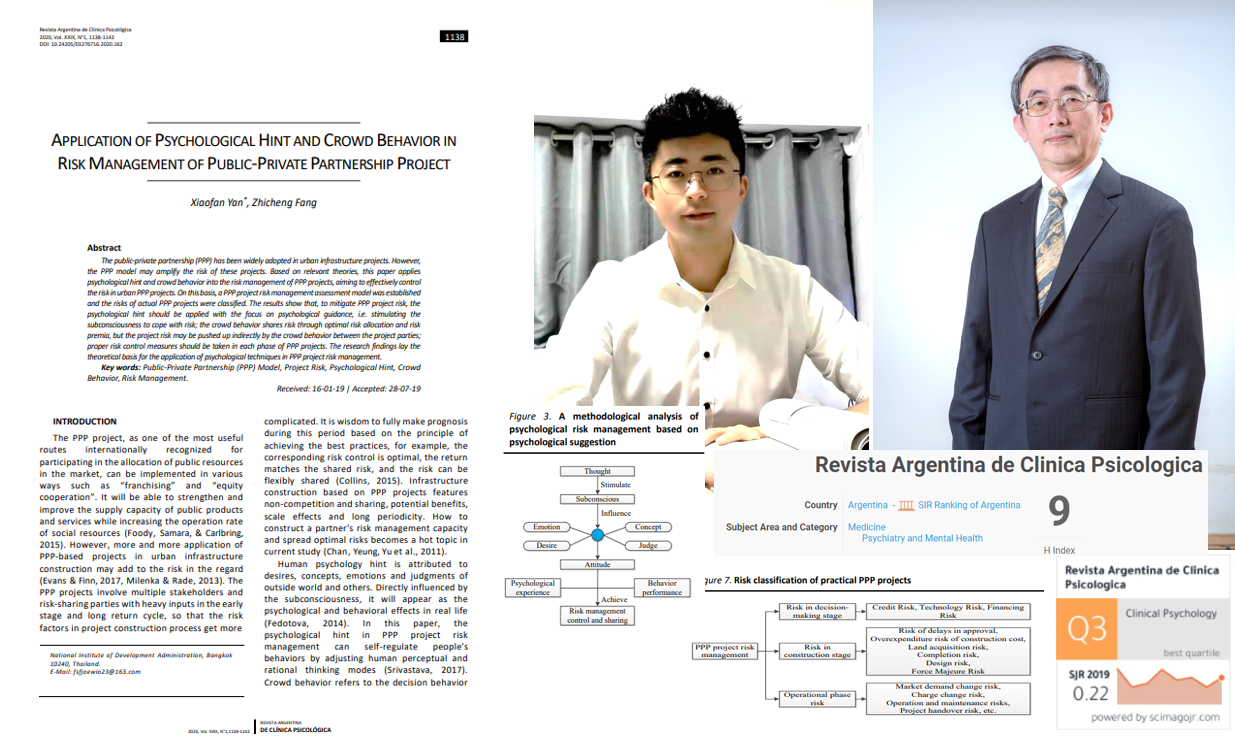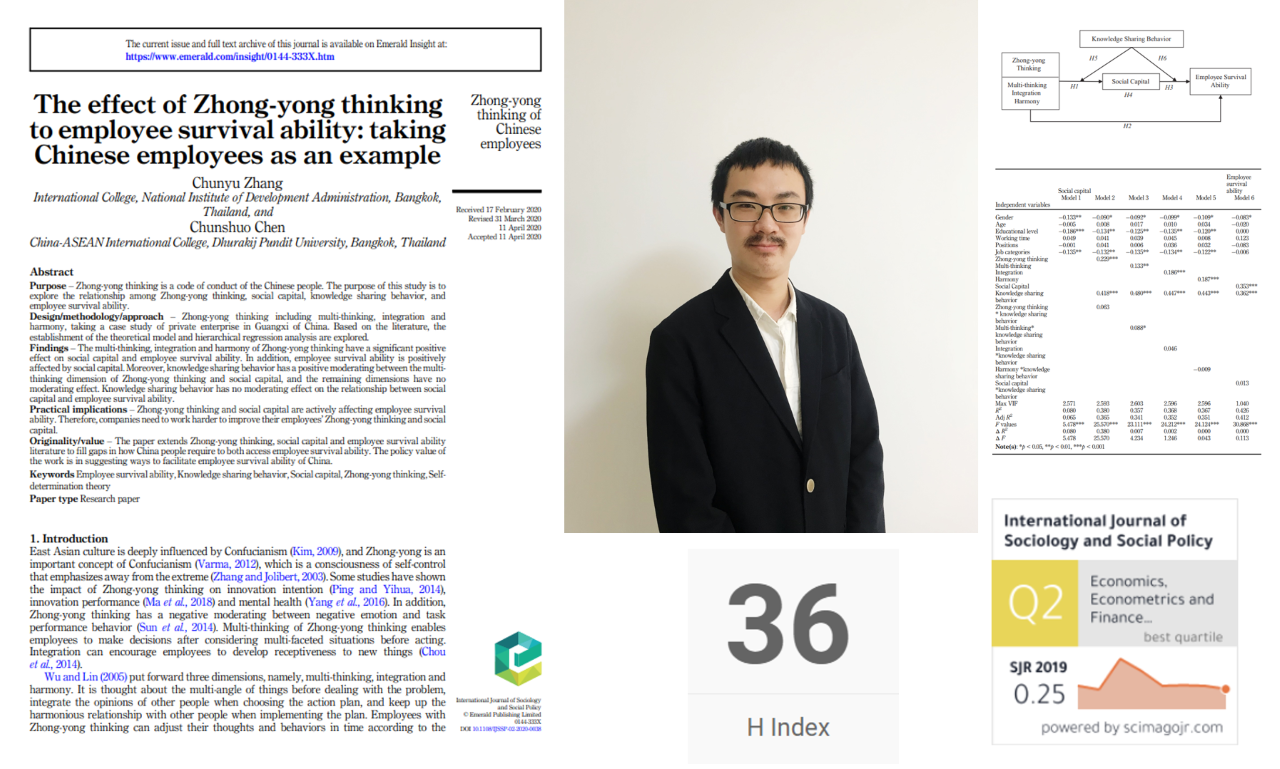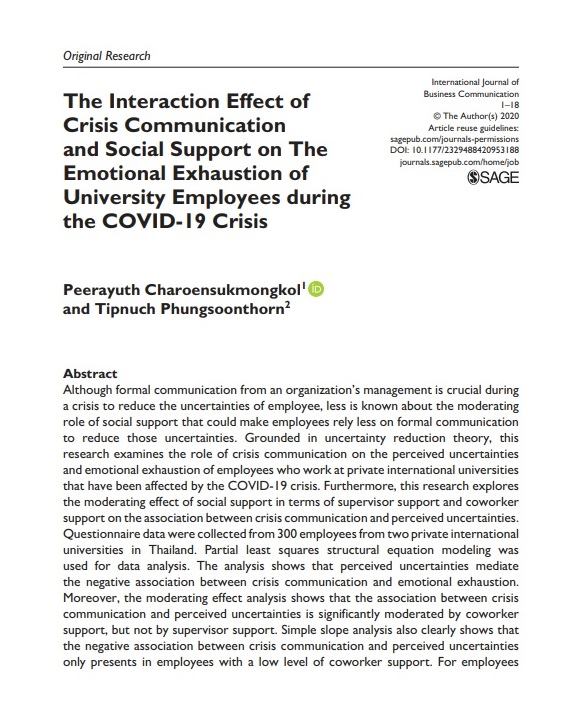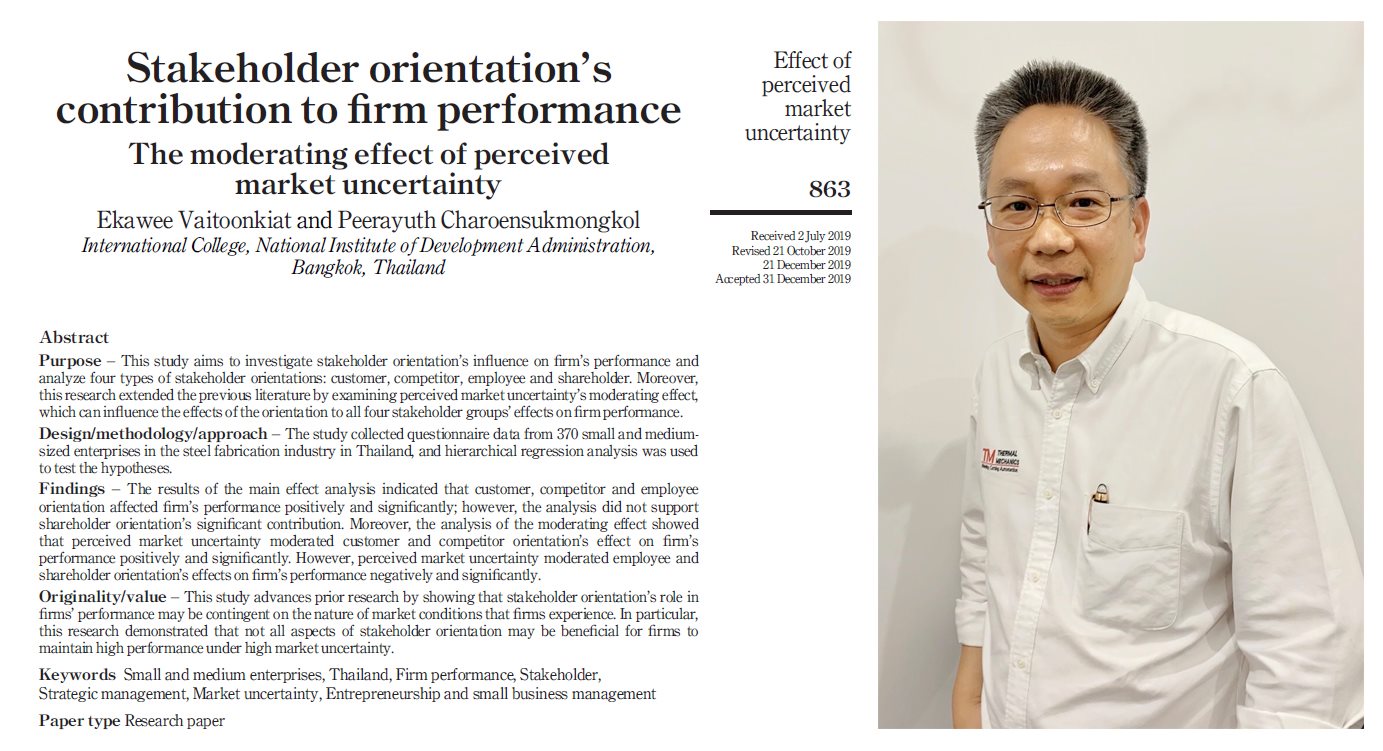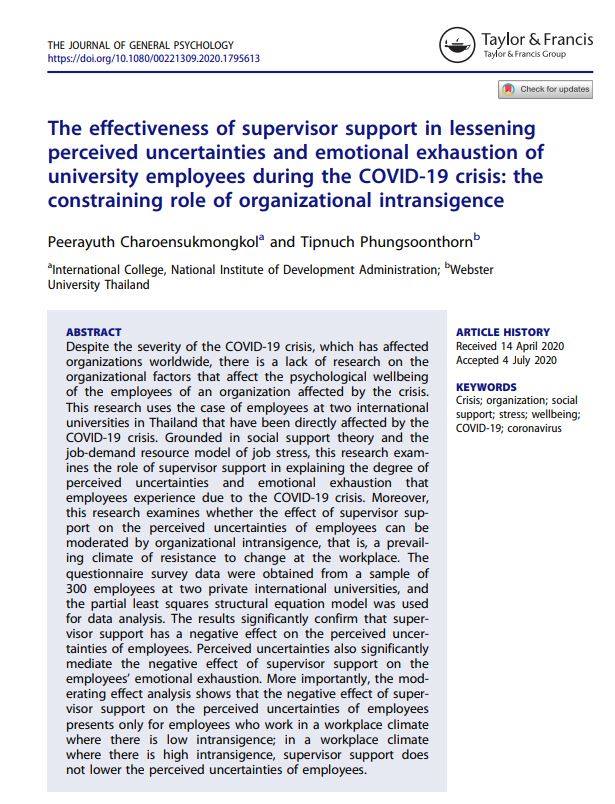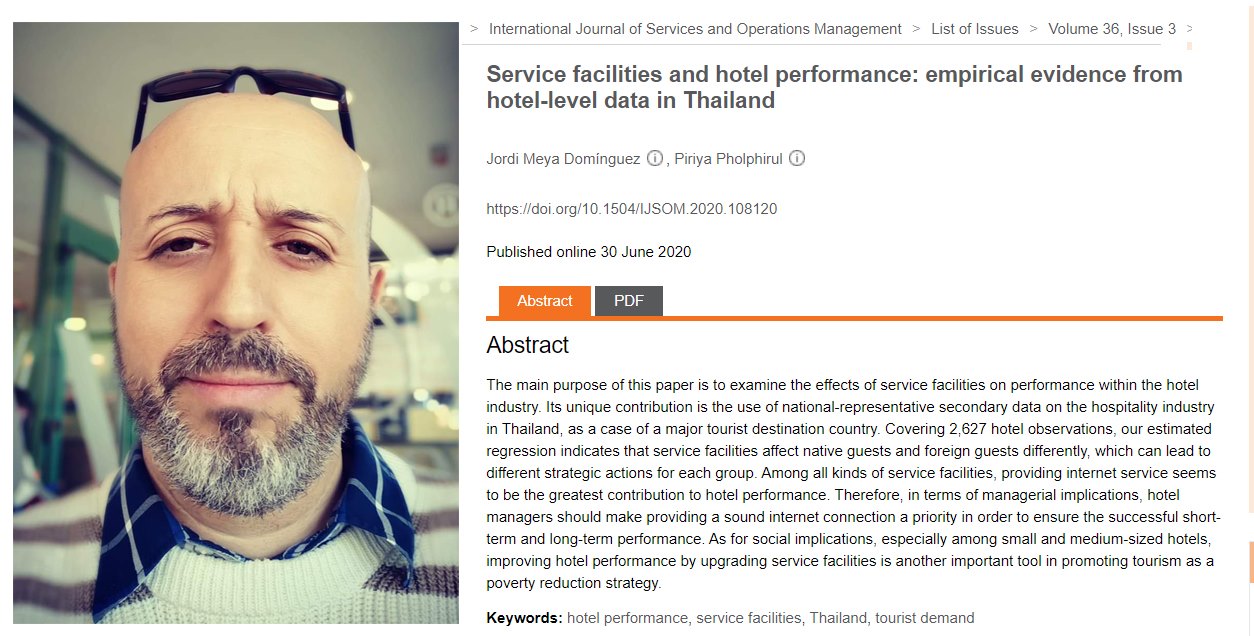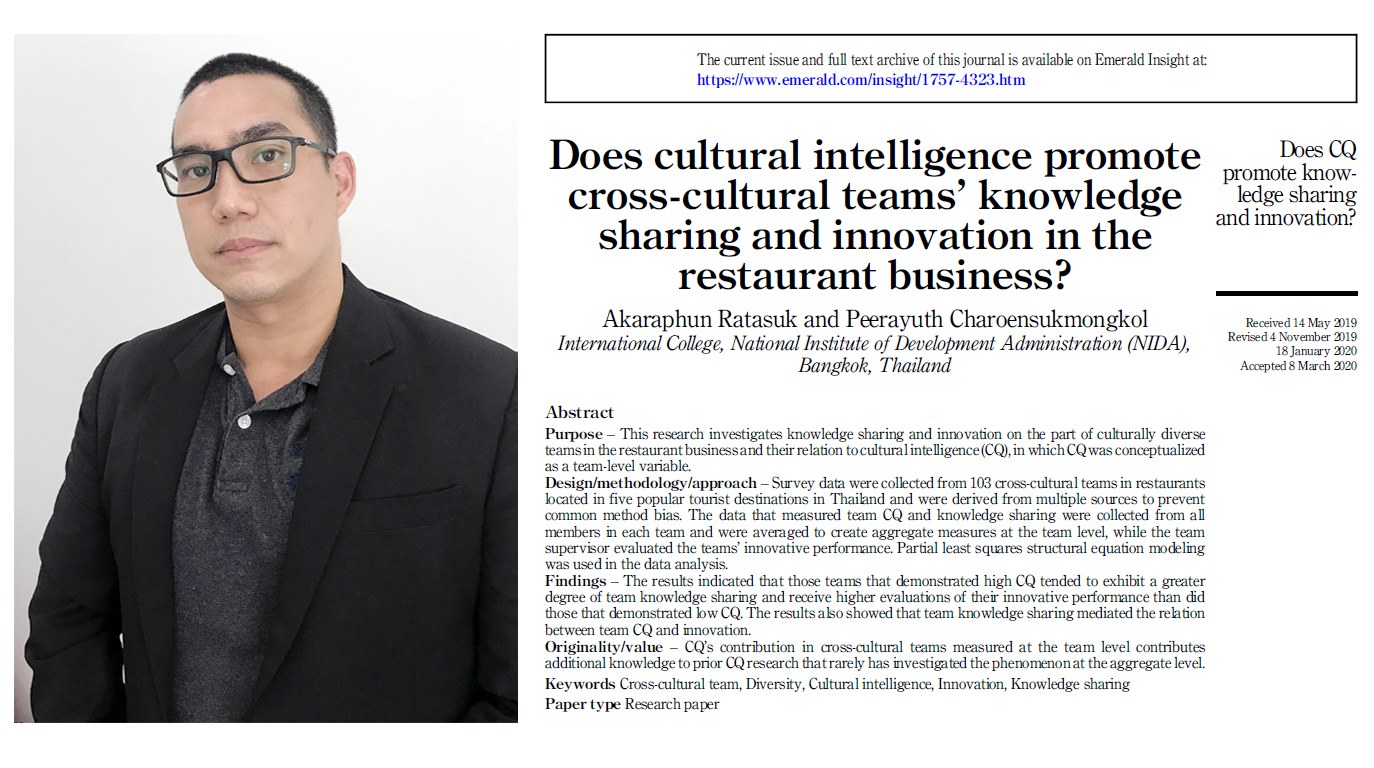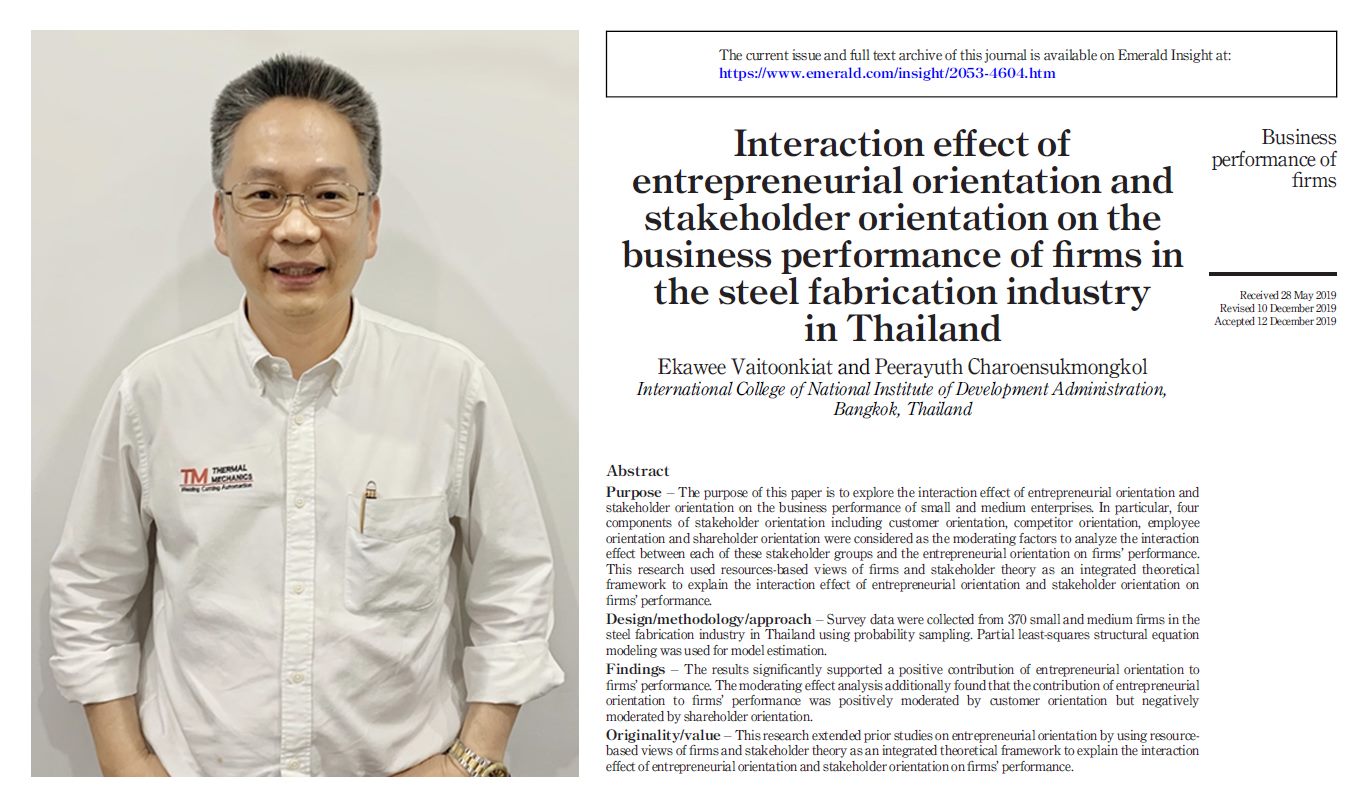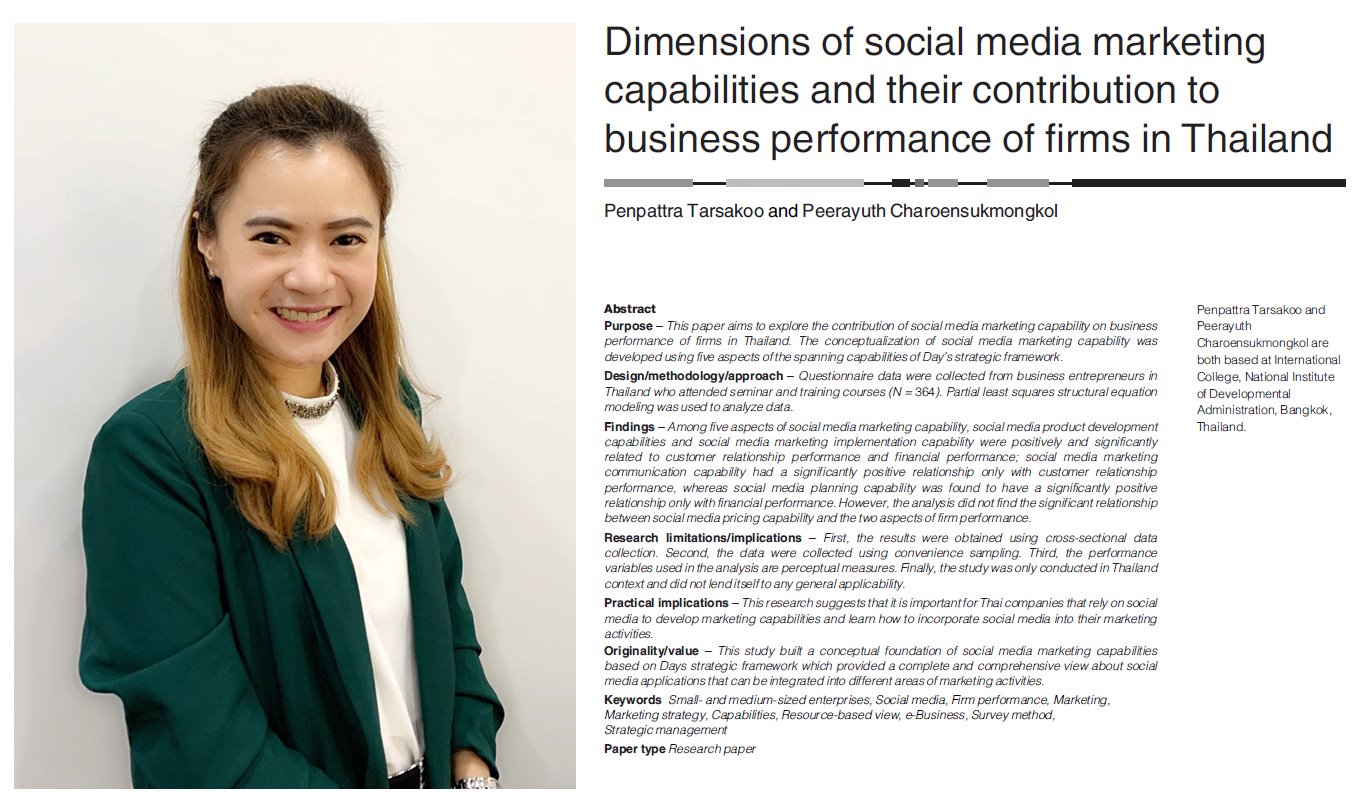Application of Psychological Hint and Crowd Behavior in Risk Management of Public-Private Partnership Project
Mr.Xiaofan Yan a recent Ph.D. student and Dr.Chih-Cheng Fang a faculty member of ICO NIDA, published the paper in the “Revista Argentina de Clinica Psicologica “, which is ranked in the “SCImago Quartile 3” in the area of Clinical Psychology. The public-private partnership (PPP) has been widely adopted in urban infrastructure
- Published in RESEARCH
The Effect of Job Crafting to Job Performance
Mr.Chunyu Zhang a recent Ph.D. graduate and Mrs.Liping Liu a recent Ph.D. student of ICO NIDA, published the paper in the “Knowledge Management Research and Practice “, which is ranked in the “SCImago Quartile 2” in the area of Business and International Management. This research studies the mediating effect of employee’s
- Published in RESEARCH
The effect of Zhong-yong Thinking to Employee Survival Ability: Taking Chinese employees as an example
Purpose Zhong-yong thinking is a code of conduct of the Chinese people. The purpose of this study is to explore the relationship among Zhong-yong thinking, social capital, knowledge sharing behavior, and employee survival ability. Design/methodology/approach Zhong-yong thinking including multi-thinking, integration and harmony, taking a case study of private enterprise in Guangxi of China.
- Published in RESEARCH
The Interaction Effect of Crisis Communication and Social Support on the Emotional Exhaustion of University Employees during the COVID-19 Crisis
The faculty of ICO NIDA, Assoc. Prof. Dr. Peerayuth Charoensukmongkol, and the former PhD student of ICO NIDA, Dr. Tipnuch Phungsoonthorn, recently published their COVID-19 research in the International Journal of Business Communication, which is the journal ranked in the SCImago’s Quartile 1 and the Scopus’ Top 11 percentile. Based on
- Published in RESEARCH
Stakeholder orientation’s contribution to firm performance the moderating effect of perceived market uncertainty
Mr. Ekawee Vaitoonkiat, a recent Ph.D. graduate of ICO NIDA, published the second paper from his dissertation. The paper is published in the “Management Research Review”, which is ranked in the “SCImago Quartile 2” in the area of Business, Management and Accounting. His research analyzes stakeholder orientation’s effect on firms’ performance
- Published in RESEARCH
The effectiveness of supervisor support in lessening perceived uncertainties and emotional exhaustion of university employees during the COVID-19 crisis: the constraining role of organizational intransigence
Private international universities is a sector of the educational industry that are among those most affected by the COVID-19 crisis, as their operations and revenues heavily depend on the enrollment of overseas students. At this stage, given that the COVID-19 crisis is still a relatively new phenomenon, research areas of management attempt to
- Published in RESEARCH
Service facilities and hotel performance: empirical evidence from hotel-level data in Thailand
Mr. Jordi Meya Domínguez, a former Master’s student of ICO NIDA, published his Independent Study (IS) research project in the “International Journal of Services and Operations Management”. The journal is ranked in the “SCImago Quartile 2 ” in the area of Industrial and Manufacturing Engineering (H-index=26). His research analyzes the effects
- Published in RESEARCH
Does cultural intelligence promote cross-cultural teams’ knowledge sharing and innovation in the restaurant business?
Mr. Akaraphun Ratasuk, a recent Ph.D. graduate of ICO NIDA, successfully published part of his doctoral dissertation in the “Asia-Pacific Journal of Business Administration”. The journal is ranked in the “SCImago Quartile 2 ” in the area of Business, Management and Accounting . His research collected data from 103 cross-cultural teams
- Published in RESEARCH
Interaction effect of entrepreneurial orientation and stakeholder orientation on the business performance of firms in the steel fabrication industry in Thailand
Mr. Ekawee Vaitoonkiat, a recent Ph.D. graduate of ICO NIDA, successfully published part of his doctoral dissertation in the “Journal of Entrepreneurship in Emerging Economies”. This journal is a high-quality international journal ranked in the “SCImago Quartile 1 (best quartile)” in the area of Economics, Econometrics and Finance. His research found
- Published in RESEARCH
Dimension of social media marketing capabilities and their contribution to business performance of firms in Thailand
Ms.Penpattra Tarsakoo, a recent Ph.D. graduate of ICO NIDA, successfully published part of her doctoral dissertation in the “Journal of Asia Business Studies”. This journal is a high-quality journal ranked in the “SCImago Quartile 1 (Best quartile)” in the area of Economics, Econometrics and Finance, with “H-index=11”. Her paper is the
- Published in RESEARCH

